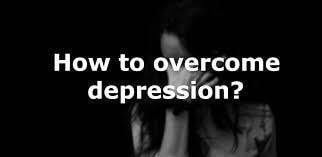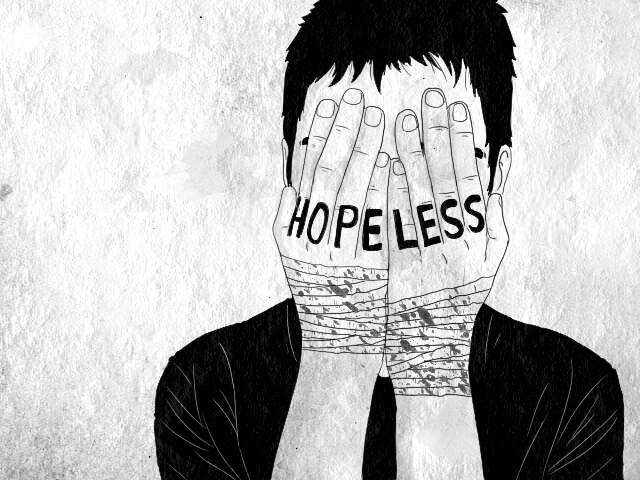You’re not alone. According to the World Health Organization, one out of every twelve people has depression. There are many different sources of information on how to overcome depression. It is easy to find an answer with a quick Google search. But depression is complicated and different for everyone who deals with it. What works for some may not work at all for others.
How To Overcome Depression?

The first thing that I have to do is make sure you know depression isn’t your fault. There is no definite scientific reason why one person gets it and another does not. Many people go through periods of high stress without ever considering themselves depressed. It’s normal for everyone to be sad once in a while. If you feel more sad, anxious, or have trouble concentrating more often than not, it is a sign that something is wrong. Talk to someone who can help you.
11 Tips For Overcoming Depression
There are no simple answers to “Boom! You’re done, and you’ll never feel blue again”. But there are strategies that may help with lifting emotional numbness and brooding that are frequently seen in depression. Both of which make it more difficult to address behavioral adjustments that might help avoid a return. Fortunately, there are ways to pierce through the gloomy barrier.
Take A Different View
While it sounds trite, you have to find something to be hopeful about. Sometimes this is as simple as watching a funny video or being around friends who are supportive. The first step toward overcoming depression is making the choice that you do want to feel better and believe things can improve.
Reach Out To Others

Depression naturally separates people, but reaching out helps more than anything else when you’re feeling blue. Connect with family members and close friends by phone or email; if possible go see them in person for an hour every day. Even though people are social beings, spending too much time alone can make your sadness worse. There is no one around to give you support or to distract you from being lonely. Try joining groups of like-minded people doing activities that interest you.
Change Your Diet
Eating junk food makes you more likely to feel depressed and anxious. There is no reason for this association, but it is smart not to make any changes until your doctor approves them since certain vitamins or supplements can have side effects when taken with antidepressants.
Exercise Regularly

You don’t need much time—just 20-30 minutes of exercise three times per week should do the trick! Mantra Care says that after just one month on their dog walking program, people’s depressive symptoms improved. They had more energy and less stress because they had an active canine companion with them.
Visualize A Happy Memory
When you’re feeling blue, think of a time when things were going well. It can be as simple as watching the sunset or spending time with someone special. Remember what is special about the place. Think of the sights, sounds, and feelings. Do this. This will make you feel happy. Happiness comes from positivity, not the other way around. And who knows—this might even lead to new memories!
Tell Me Something Good
What is it about depression that makes us feel like everything will never get better? The answer lies in the chemical imbalances and excess stress hormone production responsible for creating those feelings. Therapeutic techniques such as exercise and thinking of happy memories can improve your mood. But what if you can’t wait until then because things seem hopeless now?
Get Some Sleep

Around eight hours is sufficient for most people, however, too much sleep (or not enough) has been linked to anxiety and depression over time. If you’re having difficulty sleeping for five hours per night, that’s satisfactory; just avoid caffeine afternoon since it takes approximately six hours for half of the beverage to leave your system.
Acknowledge Your Feelings
A big first step to overcoming depression is acknowledging that you are feeling sad and experiencing symptoms. You can also decide for these feelings to stop. If your doctor prescribes medication, remember that they are just a supplement to any of these techniques. You have full control over your mental health, so try using multiple strategies at once if one isn’t working well enough on its own. And don’t forget to take care of yourself when things get tough; being proactive can prevent future depressive episodes from occurring or worsening!
Make Plans
Take the time to plan out the next week, if not month. If you have an activity that makes you happy planned each day, there is no need for your mood to stay low! According to a study from Penn State University people who wrote down their goals and plans were able to prevent depressive thoughts over a six-month period. Even just thinking about those future pursuits can be enough motivation—so get started now!
Put Your Troubles In Perspective
It’s easy to become overwhelmed when everything seems bleak; however, it helps if we remember how much worse things could actually be in comparison. The saying “this too shall pass” may seem cliché but it still rings true as long as choose hope instead of fear.
Find Something to Look Forward To
When you are in a bad mood and think that there is nothing to do, it’s not healthy to be alone. Other people can help you in this situation. Join a club or take up an activity that doesn’t require too much effort. Even if you don’t have enough energy for physical exercise, try something creative like painting or drawing. It can be good for your mind to do creative things.
Conclusion
Depression is a mental illness that affects millions of people all around the world. Some are able to recover from depression on their own, but many need specialized help in order to find relief. If you or someone close to you has been diagnosed with this disorder, then know that there are ways for you to overcome it and lead a fulfilling life once again. Finding out what works best for your personality type can be hard when so much information about how depression manifests itself exists online. That’s why we’ve compiled some helpful tips here just for you! You have options–pick one today and start feeling better tomorrow!
For more information, please contact MantraCare. Depression is a mental illness characterized by persistent feelings of sadness, hopelessness, and loss of interest in daily activities. If you have any queries regarding Online Depression Counseling experienced therapists at MantraCare can help: Book a trial Depression Therapy session


